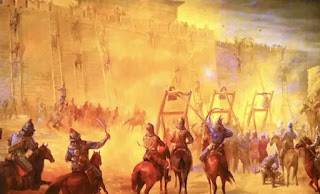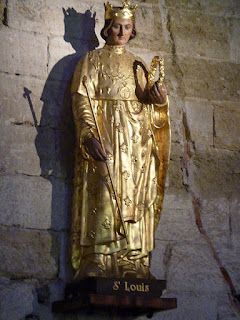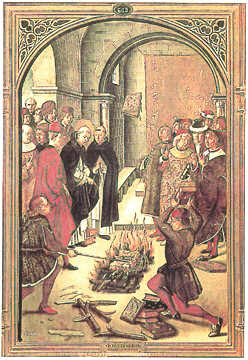He took over the Balearic Islands at the end of 1229 with 155 ships after a three-month siege, the capital of Palma first, followed by Mallorca and Menorca and Ibiza over the next few years.
He used the islands for barter later. The Catalan County of Urgell had been inherited by Aurembiax, only child of Ermengol VIII. Because Aurembiax was a woman, an uncle of hers (and vassal to James), Guerau de Cabrera, claimed she was unable to rule due to her sex and usurped control. Aurembiax's mother, Elvira of Subirats, had been a ward/protege of James' father, and James felt he owed her his support. Rather than fight, he bought Guerau off and restored Aurembiax to her land. (It is also thought by some that part of his deal was that she would become his mistress.) She married Peter of Portugal. In 1231, after her death, James gave Peter control of the Balearics in exchange for James controlling Urgell.
France to the north was very powerful, and James hoped to control the Pyrenees, the mountains separating France from the Iberian Peninsula. The geography of the area made this difficult, especially since the mountainous region created different areas with different cultures and politics. The Pyrenees were home to peoples who could consider themselves part of Andorra, Aragon, Ariège, Basque Country, Béarn, Catalonia, Navarre, or Roussillon. Languages included Aragonese, Spanish, French, Basque, Catalan, and Gascon and Languedoc dialects of the Occitan language. (The Visigoths centuries earlier had tried and failed to control the Pyrenees.)
Although his control of the Languedoc in southeastern France must have annoyed French kings, he managed to get Louis IX of France to renounce historical French claims to Barcelona on the Iberian Peninsula.
Part of his efforts to expand his rule meant forcing Muslims out of long-held territories. Valencia had been under Islamic rule for 500 years, but that did not deter James. Tomorrow we'll go over the Conquest of Valencia in 1238.


















